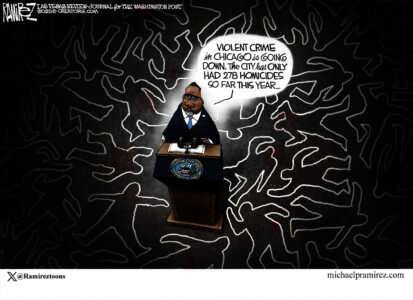Out and About: Ben Garbacz
Conversation and conservation

The U.P. is quite the outdoorsman’s paradise, with some game animal or fish always in season every month of the year and a majestic landscape to explore while tracking the animal or waiting for the fish to bite. One of my favorite hobbies to eat up free time is fishing, and it has quite the added benefit that it can help fill my freezer and eases the grocery bill when I’m light in the pocket. The reliance on fish as a need to my everyday life grew into a larger appreciation for the resource, and increased my adamancy in conservation.
Simply, if the resource is no longer there, I can no longer enjoy my hobby. When an animal is harvested from the environment, it can no longer reproduce and grow the numbers of the species. Because of this, it is important to not harvest too many of them, but it is also equally as important to harvest to some extent so the target species is not outcompeting another and driving it out (unless we are discussing invasive species of course). This is conservation — using resources in a conservative manner to ensure the resource’s continued existence.
Because of this interest and appreciation, I tend to read into DNR regulations and love to read studies regarding the resources they regulate. I also love to bump into a fellow fisherman or hunter and share stories of our experiences throughout the U.P. I have also come across the various passionate or activist types who tend to go to extremes, believing hunting and fishing to be a practice that should be abolished and those who do not believe in any regulation whatsoever. In a divided world, even the topic of natural resources has its factions with passionate opinions and claims to authority, and I have heard many disagreements over the years.
I am a hobbyist fisherman and will go hunting when the opportunity presents itself. I have also have worked as an intern, for a short time, with the Illinois Department of Natural Resources. I am not an expert in the professional sense, but I hope my experiences can offer some validity for my stance in which the best approach to natural resource management and conservation is the balance between the two worlds.
Too often have I heard at establishments where outdoorsmen gather after a day of hunting or fishing, that DNR employees do not know what they are talking about in regard to regulations, or they complain about conservation officers enforcing the rules. I have also heard comments from DNR personnel who dismiss claims of what hunters or fishermen see in the wild. The interesting thing about this issue is that neither party can truly know for certain if the other party is telling the truth. Both experiences can be valid. For example, perhaps a scientist’s study does present valid data which suggests a lowering population of a certain species, but that does not mean a hunter or fisherman goes to a location where that species is plentiful and often harvests his or her limit. Both can be true, and it is why the experiences should not be pitted against one another but rather discussed and analyzed together.
While both DNR folk and outdoorsmen utilize the same land areas, they may not necessarily be pulling their experiences from specific locations. The land is vast, and one acre can tell a completely different story and provide different insights to the health of the environment than the next. We need to encourage further collaboration instead crossing our arms and dismissing who we perceive as our rivals.
There are Committees that create a dialogue between the DNR and the citizenry, and I believe this work is imperative. Groups such as the Upper Peninsula Deer Advisory Team and the Upper Peninsula Citizens’ Advisory Council are made up ofthose who share their experiences with the DNR and provide feedback to potential regulatory changes. In fact, it was the collaboration between groups such as the Upper Peninsula Deer Advisory Team and the DNR which led to the Natural Resources Commission changing deer regulations for this year’s archery season. Hunters will have more harvesting opportunities and the deer population can have a healthier future. This was made possible through the studies and average citizen’s experiences working together.
However, instances such as this only work if people are willing to cooperate with one another and participate. As a hypothetical example, if the DNR requests a caught fish of a particular length or has a specific characteristic to be reported and an angler does not do so, the DNR does not have data it could have used which tells how a species’ population is doing. Without this data, the DNR could then create regulations which do not correlate with reality, which then effects the experience of the angler. Then the anglers are mad because the regulations do not make sense, but they did not do their part in what could have avoided the whole ordeal.
When it comes to conservation, we all have a responsibility to participate. We cannot shake our fists and look down upon the scientists nor the outdoorsmen for not seeing the bigger picture, because all sets of eyes are needed to see the entire picture. Hunting and fishing will always be a staple of the U.P.’s culture and enjoyed by many, but we need to work together in order to ensure these resources will always be available.






